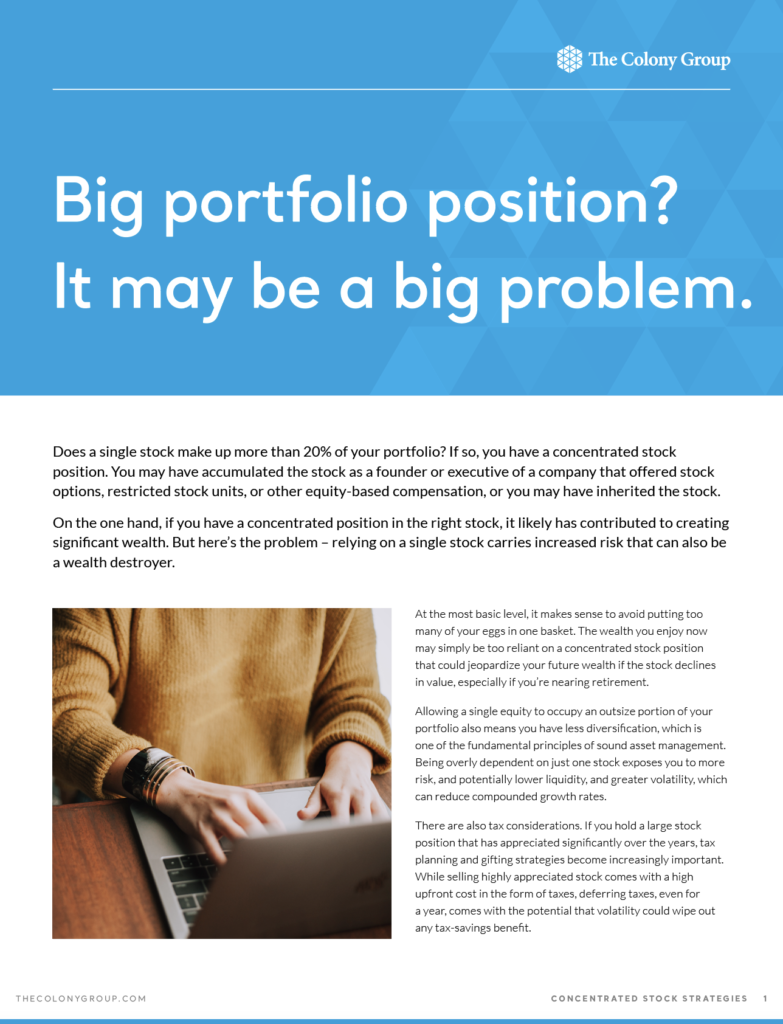Big portfolio position? It may be a big problem.
If a single stock makes up more than 20% of your portfolio, you have a concentrated stock position — which may be problematic.
The stock may be inherited or accumulated from stock options or contributions to a 401(k) plan. It may have greatly appreciated in value or may be a reliable source of income.
But an outsized position also means a portfolio with less diversification, more risk, lower liquidity, greater volatility and, if there’s significant appreciation, serious tax consequences.
Colony Group is committed to your holistic financial well-being. We can help you explore these options:
- Selling the stock — Current long-term capital gains tax rates remain at or near historical lows. Scheduling the sale of a set amount of stock with the highest cost basis over time can minimize tax liability.
- Hedging the stock — If you’re restricted from selling shares of company stock or have a short time horizon that makes selling unattractive, this strategy can protect wealth, delay income taxes and diversify risk.
- Exchange funds — Fees can be high and liquidity is limited, but this strategy diversifies the portfolio and defers capital gains.
- Charitable remainder trusts – Income tax deferral and diversification are benefits of this philanthropic approach, best suited for a large holding in a highly concentrated stock with low-cost basis positions.
For a full description of how to evaluate concentrated stock positions, and what to do with them, download your copy of Colony’s overview below.

Concentrated Stock Strategies
"*" indicates required fields
Ready to start a conversation?
Our team of advisors is eager to meet you. Connect with us today.